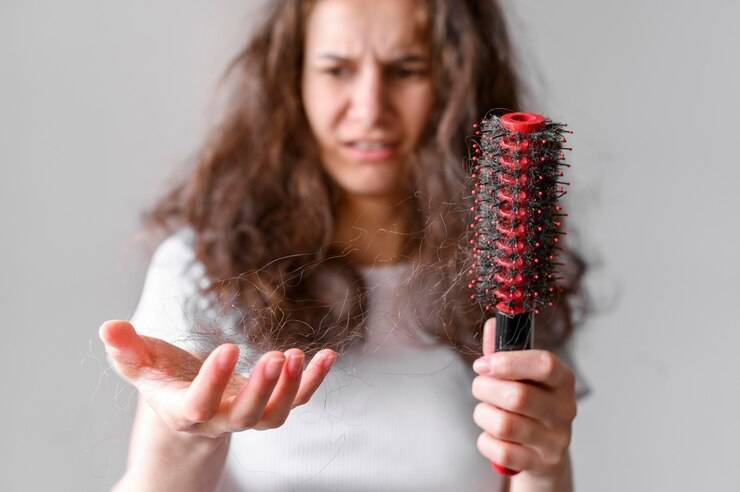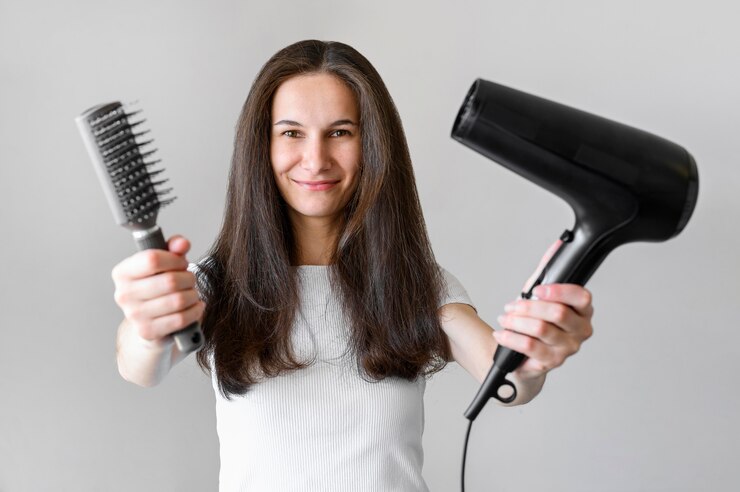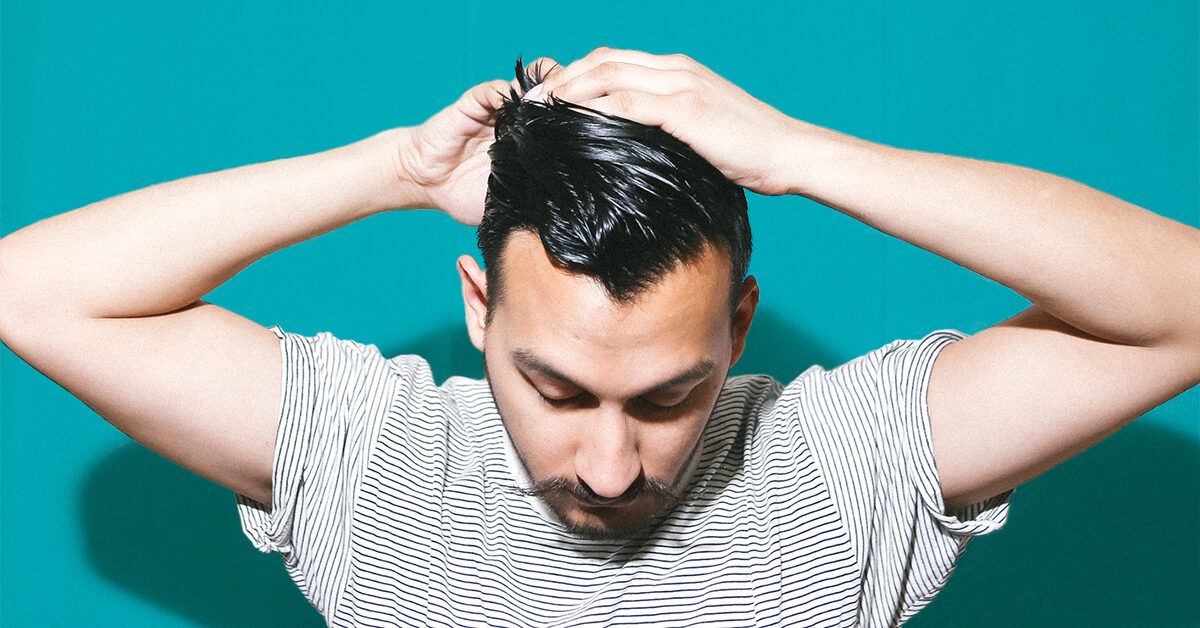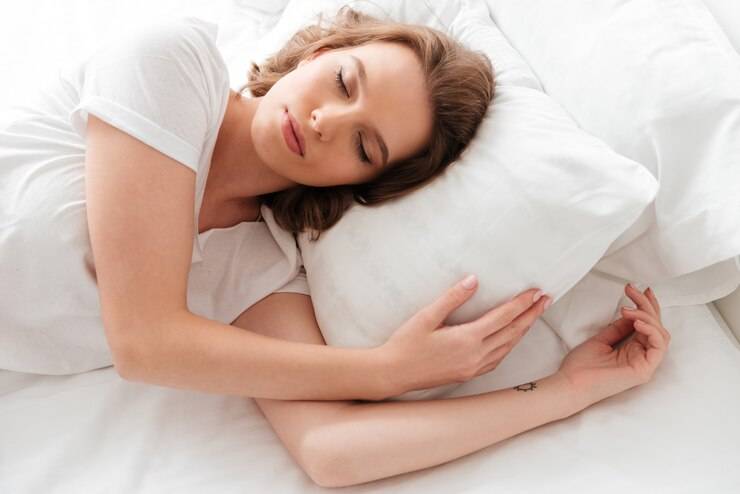
How Can I Stop Heavy Hair Loss at Home?
admin
- 0
- 10
To stop heavy hair loss at home, address nutrition deficiencies and reduce stress. Employ gentle hair care routines and avoid harsh chemicals.
Experiencing significant hair loss can be distressing and impact self-esteem. Hair is often considered a marker of beauty and health, so it’s natural to seek solutions for excessive shedding. Lifestyle adjustments, such as incorporating a balanced diet rich in vitamins and minerals, can foster healthier hair growth.
Regular scalp massages with essential oils may also stimulate hair follicles, promoting stronger hair. Reducing the use of heat styling tools and avoiding harsh hair treatments are critical steps. It’s essential to maintain a regimen that supports hair strength and minimizes breakage. Simple home remedies and over-the-counter products, such as those containing minoxidil, can be effective in managing hair loss when used consistently. Consulting with a healthcare professional can provide personalized advice for combatting hair loss, ensuring your approach is tailored to your specific needs.

Table of Contents
ToggleIdentifying The Causes Of Hair Loss
The pursuit of a lush, healthy head of hair can often be undermined by unexpected and distressing hair loss. Before seeking remedies, it’s imperative to understand the root causes of hair loss. A clear diagnosis paves the way for effective, tailored treatments. Let’s delve into the major contributing factors to hair shedding.
Genetic Factors
Genetic predisposition plays a pivotal role in hair loss, particularly in a condition known as androgenetic alopecia, commonly referred to as male or female pattern baldness. It’s characterized by a progressive thinning of hair strands, following a pattern specific to your gender. This form of hair loss is usually hereditary and progressive.
Hormonal Imbalance
Various hormonal changes can trigger hair loss. Pregnancy, childbirth, menopause, and thyroid problems are often associated with significant shifts in hormone levels that result in temporary or permanent hair thinning. Factors like elevated levels of DHT (dihydrotestosterone) can also contribute to shrinking hair follicles, leading to hair loss over time.
Nutritional Deficiencies
A balanced diet is fundamental for maintaining healthy hair. Deficiencies in key nutrients such as iron, vitamins (particularly vitamin D), and protein can cause hair to fall out. Ensuring your diet includes a rich array of nutrients can help maintain hair strength and vitality. Here’s a brief overview of essential nutrients for hair health:
- Iron: Vital for hair growth, found in leafy greens, lean meats, and beans.
- Vitamin D: Aids in the creation of new hair follicles, found in fortified foods and sunlight exposure.
- Protein: Essential for hair structure, found in meat, eggs, and nuts.
Intervening with appropriate nutritional supplements and a balanced diet is often a key step in addressing hair loss due to nutritional deficiencies.
Evaluating The Impact Of Lifestyle Choices
Understanding the influence of lifestyle choices on hair loss is crucial for anyone looking to curb this distressing issue from the comfort of their home. The health of your hair is a reflection of your overall well-being, where daily habits can either contribute to hair strength or exacerbate hair loss. Making changes to your routine can often lead to significant improvements. Below, we explore various lifestyle factors that could play a role in managing heavy hair loss.
Stress Management
Effective stress management is paramount when tackling hair loss. High stress levels can trigger a condition known as telogen effluvium, pushing hair follicles into a resting phase and leading to increased shedding. Implementing relaxation techniques such as meditation, yoga, or deep breathing exercises can help in reducing stress-induced hair fall. Prioritizing a good night’s sleep is also essential for minimizing stress.
Diet And Nutrition
Your hair’s health directly ties to the nutrients you consume. A nutrient-rich diet supports hair growth and helps prevent hair loss. Essential vitamins and minerals like Vitamin E, iron, Vitamin D, Omega-3 fatty acids, and biotin are known for improving hair health. Incorporating foods like spinach, fatty fish, eggs, nuts, and avocados can have a positive impact. Furthermore, staying hydrated by drinking plenty of water throughout the day is crucial.
Hair Care Practices
Gentle hair care can help mitigate hair loss. Be mindful when selecting hair products—opt for those that are free from harsh chemicals. Reducing the usage of heat styling tools and avoiding tight hairstyles that pull at the scalp is beneficial. When washing your hair, prefer lukewarm water over hot, and be gentle while drying. Regularly massaging your scalp with oils like coconut or castor oil can stimulate circulation and encourage hair growth.
Seeking Professional Advice And Diagnosis
Encountering heavy hair loss can be distressing and while home remedies might offer temporary solace, identifying the root cause is crucial. Seeking professional advice and diagnosis not only helps in understanding the seriousness of the condition but also paves the way for effective treatment. Embarking on this path necessitates a consultation with a specialist and potentially undergoing diagnostic tests to tailor the right treatment strategy to your specific needs.
Consulting A Dermatologist
A dermatologist specializes in skin, hair, and nail health, making them the go-to professionals for hair loss concerns. During your appointment, you can expect a thorough scalp examination. The dermatologist will inquire about your medical history, lifestyle habits, and any hair care routines that could contribute to hair loss. You may be asked about your diet, any recent stressors, medications you’re taking, and family history of hair loss, all in an effort to identify potential causes and treatments.
Diagnostic Tests
- Blood Tests: Can reveal nutritional deficiencies, hormone imbalances, or thyroid issues.
- Scalp Biopsy: A small section of scalp skin is examined to find the cause of hair loss.
- Trichoscopy: A digital tool magnifies the scalp and hair to visualize changes.
These tests are integral to unveil underlying health conditions that may be causing or exacerbating the hair loss. With precise diagnosis, a specialist can recommend the most appropriately targeted treatments.
Understanding Treatment Options
Once a diagnosis is established, the dermatologist will discuss various treatment plans. This may include:
| Treatment Type | Objective | Duration |
|---|---|---|
| Medications | To stimulate hair growth or address the root cause. | Long-term |
| Topical Treatments | Applied to the scalp to nourish hair follicles and promote growth. | Varies |
| Lifestyle Changes | To mitigate contributing factors such as stress or poor diet. | Ongoing |
Explore these options with your doctor to understand the potential side effects, success rates, and time frames associated with each. Approaching hair loss with a professional treatment plan ensures you’re addressing it as effectively and safely as possible.
Implementing Home Remedies For Hair Loss
Discovering strands of hair on your pillow or in the shower drain more often than you used to? Tackling hair loss doesn’t necessarily require expensive treatments; there are home-based strategies that might just do the trick. By understanding and leveraging the healing powers of nature and some dietary adjustments, you stand a good chance of saying goodbye to excessive hair shedding. Let’s delve into the realm of home remedies designed to combat heavy hair loss and foster a lush, healthy mane.
Scalp Massage And Aromatherapy
Stimulating blood flow to the scalp is paramount for healthy hair growth. A scalp massage, quite simply, can work wonders. Gently massaging your head boosts circulation and feeds the hair follicles with the nourishment they desperately need. To elevate the experience, consider integrating essential oils — lavender, rosemary, and peppermint oil have reputations for encouraging hair regrowth.
- Start with warm oil to aid absorption and relaxation.
- Use your fingertips to apply gentle pressure in circular motions.
- Practice this ritual daily for best results.
Dietary Supplements And Vitamins
What you put inside your body can significantly influence hair health. An intake of the right vitamins and minerals acts as the scaffolding for rebuilding hair strength. Biotin, iron, vitamin D, and zinc supplements, when taken under the guidance of a healthcare provider, might prove beneficial. Always ensure you balance supplementation with a nutrient-rich diet to create an optimal environment for hair growth.
| Vitamin/Mineral | Benefits | Food Source |
|---|---|---|
| Biotin | Strengthens hair | Egg yolk, nuts, whole grains |
| Iron | Boosts hair follicle growth | Spinach, lentils, red meat |
| Vitamin D | Stimulates new and old hair follicles | Fatty fish, fortified foods, sunlight |
| Zinc | Supports hair repair and growth | Beef, oysters, pumpkin seeds |
Herbal And Natural Hair Masks
Homemade hair masks can infuse your hair with vital nutrients and hydration. Ingredients like eggs, honey, avocado, and aloe vera are associated with various hair benefits, ranging from moisturization to preventing hair loss.
- Egg yolk mask – Rich in proteins, it can provide nourishment and strength.
- Aloe vera – Soothes the scalp, reduces dandruff, and may help halt hair fall.
- Honey and olive oil – Offer antioxidants and moisture-lock properties.
Apply these masks once a week, let them sit for thirty minutes before rinsing, and experience your hair transforming into a stronger and healthier state with consistent care.
Adopting Healthy Hair Care Habits
Adopting Healthy Hair Care Habits can play a pivotal role in putting a stop to heavy hair loss. Your locks deserve the utmost care, and with a few simple adjustments to your daily routine, you can foster a healthier scalp and stronger strands. Explore techniques to wash your hair properly, select hair products that cater to your needs, and style your hair without causing additional stress or damage.
Proper Hair Washing Techniques
Proper Hair Washing Techniques
Washing your hair correctly is fundamental in the fight against hair loss. Gently massage a sulfate-free shampoo into your scalp to avoid irritation, and follow these steps to ensure a wash that encourages hair strength:
- Use lukewarm water to avoid damage from high temperatures.
- Focus on the scalp, where oil buildup is most common.
- Be gentle; avoid vigorous scrubbing that can lead to breakage.
- Rinse thoroughly to remove all traces of shampoo and conditioner.
- Avoid washing too often, as it can strip natural oils – two to three times a week is sufficient for most hair types.
Choosing the Right Hair Products
Choosing The Right Hair Products
The myriad of hair products available can be daunting. Focus on those designed to nourish and protect. Here’s how to pick them:
- Opt for natural ingredients that promote scalp health and reduce chemical exposure.
- Look for targeted treatments if your hair is thinning, such as serums and scalp revitalizers.
- Avoid harsh chemicals like parabens and silicones that can contribute to hair loss.
- Read labels and reviews to ensure the product has a track record of promoting hair health.
Hairstyling Practices for Hair Loss Prevention
Hairstyling Practices For Hair Loss Prevention
Styling your hair is a daily ritual, but it’s crucial to adopt practices that prevent further hair loss:
| Do’s | Don’ts |
|---|---|
| Use a wide-tooth comb on wet hair to reduce breakage. | Avoid tight hairstyles that pull on the scalp, like high ponytails or braids. |
| Limit heat styling. If necessary, apply a heat protectant and use on the lowest setting. | Refrain from harsh chemical treatments, such as perms or straightening treatments. |
| Allow hair to air dry when possible to minimize heat exposure. | Don’t overbrush, which can lead to physical hair damage. |
Remember, patience and consistency with these hair care practices cultivate the best environment for hair growth and health. Minimizing hair loss starts with the small steps you take every day at home.

Credit: www.healthline.com
Frequently Asked Questions Of How Can I Stop Heavy Hair Loss At Home?
Can Diet Changes Reduce Hair Loss?
Making dietary changes can indeed help reduce hair loss. Incorporate foods rich in vitamins A, C, and E, as well as iron and zinc. These nutrients promote hair growth and health. A balanced diet with lean proteins, fruits, and vegetables is crucial for hair health.
What Home Remedies Help Prevent Hair Loss?
Several home remedies can prevent hair loss, such as massaging your scalp with essential oils like rosemary and peppermint. Applying aloe vera, or a hair mask made from egg yolk and olive oil can nourish your scalp. Consistency is key for seeing results.
Does Stress Cause Hair Loss And How To Manage It?
Yes, stress can indeed cause hair loss. Managing stress through relaxation techniques such as meditation, exercise, or deep breathing can help. Getting adequate sleep and maintaining a healthy lifestyle are also important in reducing stress-related hair loss.
Are There Any Effective Natural Hair Loss Treatments?
Natural treatments like onion juice or saw palmetto extracts are anecdotal but have supporters. Scientific backing is limited, yet some individuals experience less hair loss after regular use. It’s essential to test for any allergic reactions before full application.
Conclusion
Tackling hair loss effectively requires consistency and patience. Implement the home remedies shared, ensuring you choose treatments that align with your lifestyle and hair type. Over time, you’ll likely notice a reduction in hair fall. Remember, a healthy diet and stress management are your allies in this journey.
Don’t hesitate to consult a professional for personalized advice tailored to your unique situation. Keep your hair care routine simple, natural, and regular for the best results.



